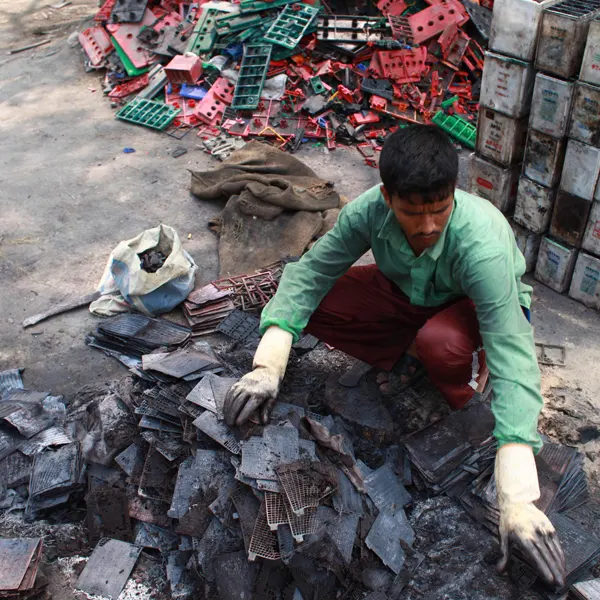Description
The insufficiency of primary lead sources to satisfy the demand makes the recycling of used batteries necessary. This study quantitatively assesses the impact of different policy instruments on reducing lead pollution from lead-acid battery (LAB) recycling. We develop a system dynamics model to analyze the dynamics of LAB recy- cling considering remanufactures and recyclers spanning formal and informal sectors in the Indian context. We model the competition between the formal and informal sectors in both recycling and remanufacturing settings in the lead recovery process. We test our model with the data from the Indian automobile LAB recycling and investigate the impact of policy decisions on the performance of the automobile LAB recycling. This study ex- plores three policies in anticipation of improving the efficiency of the recycling process—(i) reduce tax on regulated recyclers, (ii) offer subsidy to regulated recyclers, and (iii) offer subsidy to formal battery re- manufactures. Our results show that the first two policies help the business shift from informal to formal sector which results in lowering the lead pollution. We observe that providing subsidy on formal battery can reduce the amount of lead excretion; however, a very high subsidy can lead to the shutting down of both regulated andunregulated recycling sectors.



